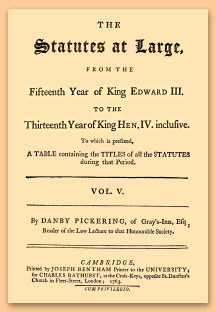 Introduction:
Introduction:
In the annals of legal history, few documents hold as much significance and enduring influence as the Magna Carta. Signed over eight centuries ago, this medieval charter represents a watershed moment in the struggle for rights and liberties, laying the groundwork for the principles of modern democracy and the rule of law. From its humble origins in 13th-century England to its enduring legacy in contemporary legal systems worldwide, the Magna Carta remains a symbol of justice, equality, and the power of the written word.
Origins and Context:
The Magna Carta, Latin for "Great Charter," was born out of a tumultuous period in English history. In 1215, King John of England faced mounting discontent among his barons, who were frustrated by his arbitrary rule and heavy taxation. In a bid to appease his disgruntled subjects, King John was compelled to meet with his barons at Runnymede, where the terms of the Magna Carta were negotiated and ultimately sealed.
Key Provisions:
At its core, the Magna Carta was a document aimed at curbing the absolute power of the monarchy and establishing principles of governance based on the rule of law. While many of its original clauses pertained to the concerns of feudal lords and landowners, several provisions laid the groundwork for broader principles of liberty and justice. Among its key provisions were guarantees of due process, limits on taxation without representation, and protections against arbitrary imprisonment.
Legacy and Influence:
Despite being annulled by King John shortly after its signing, the Magna Carta would go on to exert a profound influence on English and later global legal systems. Its principles were revived and reissued by subsequent English monarchs, including King Henry III and King Edward I, who recognized the charter's significance as a symbol of royal accountability and the rights of subjects. Over time, the Magna Carta became enshrined in English common law and served as a touchstone for constitutional developments around the world.
Impact on Democracy and Human Rights:
The Magna Carta's legacy extends far beyond its historical context, shaping the evolution of democratic governance and human rights. Its emphasis on the rule of law, individual liberties, and limits on government power laid the groundwork for subsequent legal and constitutional developments, including the English Bill of Rights, the United States Constitution, and the Universal Declaration of Human Rights. By establishing the principle that no one, not even a king, is above the law, the Magna Carta paved the way for modern notions of justice, equality, and the protection of fundamental rights.
- Global Significance:
While the Magna Carta originated in medieval England, its principles have transcended national borders and influenced legal systems around the world. Copies and translations of the charter circulated widely in Europe, inspiring movements for liberty and constitutional reform in countries such as France, Spain, and the Netherlands. In the United States, the Magna Carta served as a touchstone for the Founding Fathers, who drew upon its principles when drafting the Constitution and Bill of Rights. Today, replicas of the Magna Carta can be found in capitals and courtrooms across the globe, serving as a reminder of its enduring legacy and universal appeal.
Challenges and Criticisms:
While the Magna Carta remains a revered symbol of justice and liberty, it is not without its limitations and criticisms. Some scholars argue that its provisions were primarily aimed at protecting the interests of the feudal elite, rather than promoting equality and justice for all. Others point to its failure to address issues such as the rights of women and non-landowning classes, highlighting the document's inherent biases and limitations. Nevertheless, the Magna Carta's historical significance and enduring influence cannot be overstated, serving as a beacon of hope for those who seek to uphold the principles of democracy, human rights, and the rule of law.
 Conclusion:
Conclusion:
In the pantheon of legal documents, few can rival the Magna Carta in terms of historical importance and enduring legacy. From its humble origins as a medieval charter to its status as a global symbol of justice and liberty, the Magna Carta continues to inspire generations of scholars, activists, and leaders who seek to uphold the principles of democracy, human rights, and the rule of law. As we reflect on its 800-year legacy, let us reaffirm our commitment to the timeless ideals embodied in this Great Charter and strive to build a more just and equitable world for all.



You must be logged in to post a comment.